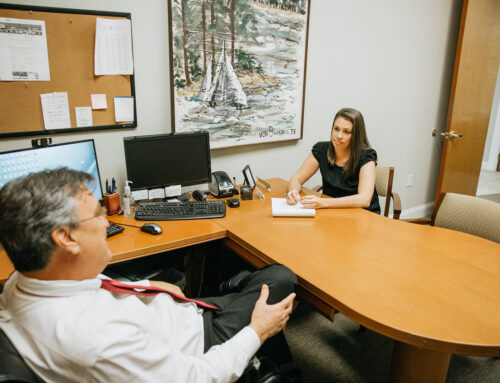Credit cards can be an excellent financial tool, helping you save money and build credit. But if they are misused, they can become quite expensive. High-interest rates, late fees, hits to your credit score – a lot is riding on using a credit card properly, and the costs can add up rapidly. However, you can learn to use credit cards responsibly by educating yourself on a few basic facts.
Here is our list of the top 9 situations to avoid regarding credit cards.
1. Carrying a month-to-month balance: One of the most persistent myths surrounding credit cards is that carrying a monthly balance improves your credit. In a recent poll, 22% of Americans said they carried a balance believing it would raise their credit score. The truth is that maintaining a monthly balance damages your credit score and costs you money. Monthly balances cause a higher credit utilization rate (the amount of debt compared to available credit.) Consumers with an average 800 FICO score typically use only 7% of their credit limit. Finally, carrying a balance costs interest, which is additional money gone every month.
2. Making only minimum payments: Credit card holders should always make a payment, but making only the minimum payment is not advisable. Paying the minimum monthly adds years to the time it will take to pay off the debt and significant amounts of interest to your balance.
3. Missing payments: Late or missed payments can significantly damage an individual credit score if payments are more than 30 days past due. According to FICO data, credit scores can drop as much as 80 points for a 30-day missed payment and 133 points for a 90-day missed payment. Your credit score will only be affected once the payment exceeds 30 days past due, but late fees or interest rate penalties may apply.
4. Ignoring your statement: It’s essential to check that the transactions listed on your statement are accurate so you can remediate the situation quickly. Whether a stolen card or merely a mistake, be sure to verify everything looks correct and remedy the problem if not.
5. Not understanding APR: A new credit card comes with a long cardmember agreement that few people read. However, you must review account terms to understand all the applicable fees and associated charges. Here are the terms to understand:
- Annual fee: The yearly fee charged for having the card.
- Purchase APR: The annual percentage rate is the yearly interest rate purchases are charged when you carry a balance month-to-month.
- Balance transfer APR: This interest rate applies to balance transfers.
- Penalty APR: A higher interest rate charged when payments are late.
- Foreign transaction fee: Fee charged for purchases made outside the U.S.
- Balance-transfer fee: Fee charged when debt is transferred to the account.
6. Taking a Cash Advance: Taking out a cash advance can be more costly than it is worth. Interest starts accruing immediately upon withdrawal (no grace period), and a cash advance fee is typically applied.
7. Maxing out the card: Using all available credit is never intelligent. It can lower your credit score, result in higher interest fees, and gives no buffer for emergencies. If charging close to the limit monthly is unavoidable, check about a higher credit limit (but don’t use the extra money!)
8. Applying for too many new cards: Every time a credit application is submitted, a new inquiry is posted to the credit report. Too many inquiries in a short period look risky to lenders. An individual should only apply for credit once every six months and only as needed. Pre-qualification forms allow applicants to evaluate their likelihood of qualifying without hurting credit scores.
9. Closing a credit card account: Credit services look for the amount of time an applicant has held credit when determining a credit score. Closing a credit card usually negatively impacts your credit score. Unless you are being charged an annual fee, keep the account open but put the card away and don’t use it.
Sometimes, the circumstances of life catch us off-guard. No matter how prudent we have been in taking care of our credit and paying our balances, we can fall behind in payments if we lose a job or experience a serious illness.
If you are overwhelmed by credit card debt and need a solution, bankruptcy may be the answer. Call Richard V. Ellis, Sarasota bankruptcy attorney, for more information.





